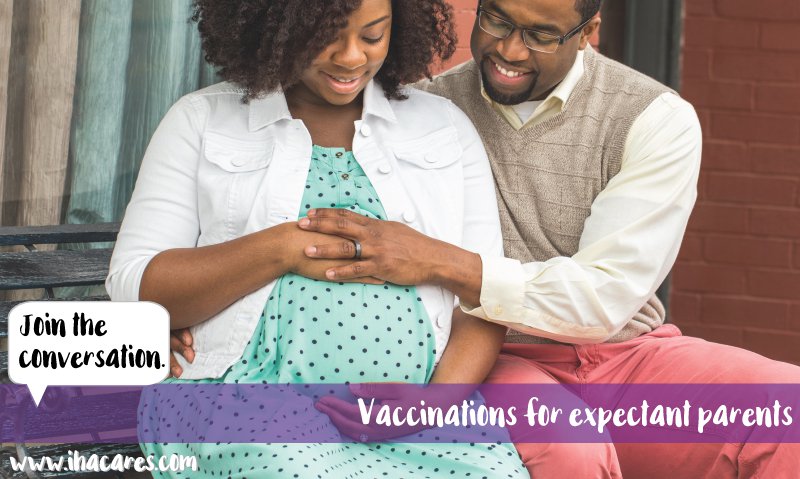
Question: My wife and I are expecting our first child. My primary care physician suggested we get our vaccinations updated prior to the baby arriving and make sure our families are vaccinated as well. We were both vaccinated as kids. What type of immunizations should we be planning for?
Answer: Congratulations on your first baby! There are a few vaccinations that are important for your wife to get during pregnancy, because they will also protect your child before he can get his own vaccines. The vaccines are important for you and any close family members who will be frequently around the baby to get as well. Even if you were immunized as a child, you may be due for a booster because immunities can fade over time, or if a vaccination wasn’t available when you were young.
These are the vaccinations that the U.S. Centers for Disease Control and Prevention (CDC) recommend for both parents and other family members.
THE FLU VACCINE
The flu vaccine protects against three strains of influenza virus. The CDC recommends that everyone, every year, get a flu vaccine. It’s especially important for pregnant women to get because the immunity can be passed through to the fetus, helping protect the baby when it’s less than 6 months and too young to get the vaccine. It’s also important that anyone who lives with or cares for babies less than 6 months gets the vaccine.
THE CHICKEN POX VACCINE
Chicken pox tends to be a more serious illness in adults than in children. If a woman catches chicken pox while pregnant, she could get really sick. There’s also a small chance it could affect the fetus. The vaccine is the best way to prevent chicken pox. If you’re not immune (if you’ve never had it or been vaccinated), you should get the vaccine. Pregnant women who are unsure of their immunity should be tested and will be given the first dose right after giving birth.
THE TDAP VACCINE
The CDC recommends the Tdap (tetanus, diphtheria and pertussis) for all adults; women should get it during each pregnancy. Anyone with regular contact with babies under a year of age should get a Tdap shot as soon as possible (at least two weeks prior to contact is recommended). Pertussis can be life-threatening for babies, and they’re most likely to catch it from a family member. It’s highly contagious and causes severe coughing attacks that can last for months.
THE HEPATITIS A VACCINE
Hepatitis A is prevalent in many parts of the world. It causes jaundice, diarrhea and flu-like symptoms that can be severe. The CDC recommends anyone adopting or caring for a child from a country outside of the US, Western Europe, New Zealand, Australia, Canada or Japan should be vaccinated.
THE MMR VACCINE
The MMR vaccine protects against measles, mumps and rubella (German measles). Anyone born after 1956 that hasn’t gotten the vaccine, or hasn’t had a positive result on a blood test for rubella immunity should be vaccinated. If you’re pregnant, you’ll have to wait until after the baby is born to get the shot. Some adults, not all, are immune to German measles. However, if it is contracted during pregnancy, you could miscarry or give birth to a child with serious birth defects.
If you have questions about these vaccines, please contact your primary care physician. They should have your immunization records and will work with you and your wife on your specific needs and testing for immunities.
This article was originally published on September 22, 2014, and was updated on March 28, 2017.
